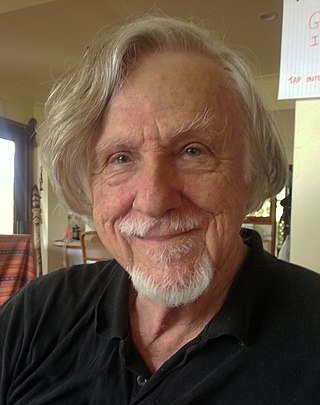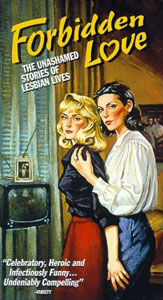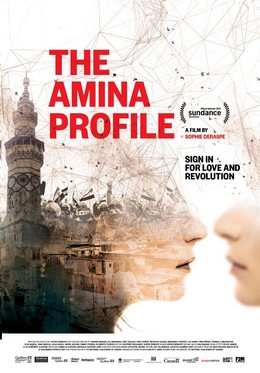Related Research Articles

The National Film Board of Canada is Canada's public film and digital media producer and distributor. An agency of the Government of Canada, the NFB produces and distributes documentary films, animation, web documentaries, and alternative dramas. In total, the NFB has produced over 13,000 productions since its inception, which have won over 5,000 awards. The NFB reports to the Parliament of Canada through the Minister of Canadian Heritage. It has bilingual production programs and branches in English and French, including multicultural-related documentaries.

The history of cinema in Quebec started on June 27, 1896 when the Frenchman Louis Minier inaugurated the first movie projection in North America in a Montreal theatre room. However, it would have to wait until the 1960s before a genuine Quebec cinema industry would emerge. Approximately 620 feature-length films have been produced, or partially produced by the Quebec film industry since 1943.
Robin Spry was a Canadian film director, producer and writer. He was perhaps best known for his documentary films Action: The October Crisis of 1970 and Reaction: A Portrait of a Society in Crisis about Quebec's October Crisis. His 1970 film Prologue won the BAFTA Award for Best Documentary.
Cynthia Scott is a Canadian award-winning filmmaker who has produced, directed, written, and edited several films with the National Film Board of Canada (NFB). Her works have won the Oscar and Canadian Film Award. Scott is a member of the Royal Canadian Academy of Arts. Her projects with the NFB are mainly focused on documentary filmmaking. Some of Scott's most notable documentaries for the NFB feature dancing and the dance world including Flamenco at 5:15 (1983), which won an Academy Award for Best Documentary at the 56th Academy Awards in 1984. She is married to filmmaker John N. Smith.

Michael Dattilo Rubbo is an Australian documentarian/filmmaker.

Forbidden Love: The Unashamed Stories of Lesbian Lives is a 1992 Canadian hybrid drama-documentary film about Canadian lesbians navigating their sexuality while homosexuality was still criminalized. Interviews with lesbian elders are juxtaposed with a fictional story, shot in fifties melodrama style, of a small-town girl's first night with another woman. It also inserts covers of lesbian pulp fiction. The film presents the stories of lesbians whose desire for community led them on a search for the few public beer parlours or bars that would tolerate openly queer women in the 1950s and 60s in Canada. It was written and directed by Lynne Fernie and Aerlyn Weissman and featured author Ann Bannon. It premiered at the 1992 Toronto Festival of Festivals and was released in the United States on 4 August 1993. It was produced by Studio D, the women's studio of the National Film Board of Canada.

Michel Brault, OQ was a Canadian cinematographer, cameraman, film director, screenwriter, and film producer. He was a leading figure of Direct Cinema, characteristic of the French branch of the National Film Board of Canada in the 1960s. Brault was a pioneer of the hand-held camera aesthetic.
Incident at Restigouche is a 1984 documentary film by Alanis Obomsawin, chronicling a series of two raids on the Listuguj Mi'gmaq First Nation (Restigouche) by the Sûreté du Québec in 1981, as part of the efforts of the Quebec government to impose new restrictions on Native salmon fishermen.
John Spotton C.S.C. was a Canadian filmmaker with the National Film Board of Canada.
John Kemeny was a Hungarian-Canadian film producer whom the Toronto Star called "the forgotten giant of Canadian film history and...the most successful producer in Canadian history." His production credits include The Apprenticeship of Duddy Kravitz, Atlantic City, and Quest for Fire.

Kathleen Shannon was a Canadian film director and producer. She is best known as the founder and first executive producer of Studio D of the National Film Board of Canada, the first government-funded film studio in the world dedicated to women filmmakers.

The Amina Profile is a 2015 Canadian documentary film directed by Sophie Deraspe and coproduced by Esperamos and the National Film Board of Canada, which premiered at the 2015 Sundance Film Festival in the World Cinema category. It was pitched at Sheffield Doc/Fest's MeetMarket in 2014. The film was retitled A Gay Girl in Damascus: The Amina Profile by its U.S. distributor IFC for the theatrical release and for subsequent film festival screenings.

Albert Kish was a Canadian documentarian/filmmaker.

Marquise Lepage, is a Canadian (Québécoise) producer, screenwriter, and film and television director. She is best known for her 1987 feature Marie in the City , for which she received a nomination for Best Director at the 9th Genie Awards in 1988. She was also a nominee for Best Live Action Short Drama at the 14th Genie Awards in 1993 for Your Country, My Country . She was hired by the National Film Board (NFB) as a filmmaker in 1991. One of her first major projects for the NFB was The Lost Garden: The Life and Cinema of Alice Guy-Blaché, a documentary about female cinema pioneer Alice Guy-Blaché.

Gulîstan, Land of Roses is a 2016 feature-length documentary film about women guerillas in a Kurdistan Workers' Party (PKK) Free Women's Unit, in combat against the Islamic State of Iraq and the Levant (ISIL), directed by the Kurdish Montreal filmmaker Zaynê Akyol. Shot in Iraqi Kurdistan, the film is co-produced by Montreal's Périphéria Productions, Germany's MitosFilm and the National Film Board of Canada.
Five Feminist Minutes is a Canadian short film anthology released in 1990 by the National Film Board of Canada. The films were produced independently for the 15th anniversary of Studio D of the National Film Board of Canada in collaboration with Regards de Femmes and other NFB production studios in Canada.

Studio D was the women's unit of the National Film Board of Canada (NFB) and the world's first publicly funded feminist filmmaking studio. In its 22-year history, it produced over 140 films and won 3 Academy Awards. Cinema Canada once called it the "Jewel in the Crown Corporation."
The Bronswik Affair is a 1978 Canadian short film, directed by Robert Awad and André Leduc for the National Film Board of Canada.

Jeremiah Hayes is a Canadian film director, writer and editor. Hayes is known for being the co-director, co-writer and the editor of the documentary Reel Injun, which was awarded a Gemini Award in 2010 for Best Direction in a Documentary Program. In 2011, Reel Injun won a Peabody Award for Best Electronic Media. Hayes was the co-editor of Rumble: The Indians Who Rocked the World, which was awarded a Canadian Screen Award for Best Editing in a Documentary in 2018.
Jacques Giraldeau (1927-2015) was a Canadian documentary filmmaker from Quebec. He spent most of his career at the National Film Board of Canada and became known primarily for his films about the history of Quebec as seen through the eyes of its artists. He had a fondness for the avant-garde and many of his films are considered to be experimental.
References
- ↑ "NFB -- Abortion: Stories from North and South". National Film Board of Canada.
- 1 2 3 4 5 Cooper, Margaret (1986). "THE ABORTION FILM WARS: Media in the Combat Zone". Cineaste (ARCHIVE). Vol. 15 (2 ed.). Screen Studies Collection. p. 12.
- 1 2 Evans 1991, p. 299.
- 1 2 3 4 5 6 7 "Our Collection, Abortion: Stories from North and South". National Film Board of Canada. 11 October 2012.
- ↑ "Psychology of Women Quarterly". Vol. 10. 1986. pp. 443–446.
- 1 2 Paddock, Elizabeth G. (December 1985). "AudioVisual Reviews". Library Journal.
- ↑ Longfellow, Brenda (February 1985). "From didactics to desire". Canadian Forum. p. 31.